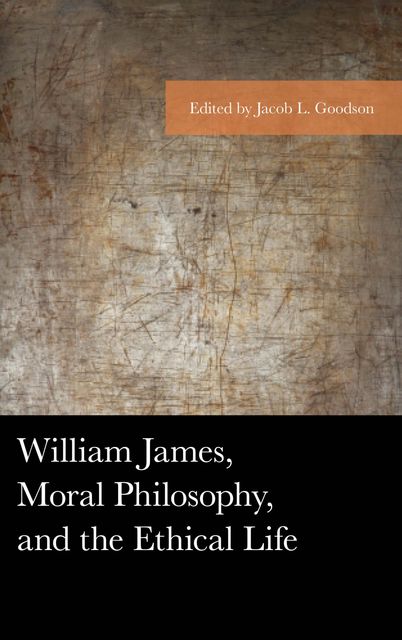A Bookmate-webhelyen és ajánlásaink javítása érdekében sütiket használunk.
További információért olvassa el a sütikre vonatkozó irányelveinket.
További információért olvassa el a sütikre vonatkozó irányelveinket.
Minden sütit elfogad
Cookie Beállítások

en
Olvassa alkalmazásunkban:
iOS
·Android
John Shook,Scott R.Stroud,John Joseph,Guy Axtell,Jacob L. Goodson,Amy Kittelstrom,Anthony Karlin,D. Micah Hester,Ermine L. Algaier IV,Gregory Eiselein,Jaishikha Nautiyal,Neal A. Tognazzini,Robert B. Talisse,Roger Ward,Scott F. Aikin
William James, Moral Philosophy, and the Ethical Life
Értesítsen, ha a könyv hozzá lesz adva
Benyomás
Hozzáadás polchoz
Már olvasott
Könyvben lévő hiba jelentése
Megosztás
Facebook
Twitter
Hivatkozás másolása
Ennek a könyvnek az olvasásához töltsön fel EPUB vagy FB2 formátumú fájlt a Bookmate-re. Hogyan tölthetek fel egy könyvet?
Virtue theory, natural law, deontology, utilitarianism, existentialism: these are the basic moral theories taught in “Ethics,” “History of Philosophy,” and “Introduction to Philosophy” courses throughout the United States. When the American philosopher William James (1842 – 1910) find his way into these conversations, there is uncertainty about where his thinking fits. Utilitarianism has become the default position for teaching James’s pragmatism and radical empiricism, but this default position fails to address and explain James’s multiple criticisms of John Stuart Mill’s formulaic approach to questions concerning the moral life. Upon a close reading of James’s writings, we can catalogue the ways in which James wants to avoid the following: (a) the hierarchies of Christian natural law theory, (b) the moral calculus of Mill’s utilitarianism, © the absolutism and principle-ism of Immanuel Kant’s deontology, and (d) the staticity of the virtues found in Aristotle’s moral theory. Elaborating upon and clarifying James’s differences from these dominant moral theories will be a crucial feature of this collection of essays. This collection, however, is not intended to be wholly negative – that is, only describing to readers what James’s moral theory is not. More importantly, we seek to articulate the positive features of James’s ethics and moral reasoning: what does it mean to an ethical life, and how should we theorize about morality?
több
Ez a könyv jelenleg nem érhető el
688 nyomtatott oldalak
Már olvasta? Mit gondol róla?
👍👎
fb2epub
Húzza és ejtse ide a fájljait
(egyszerre maximum 5-öt)

